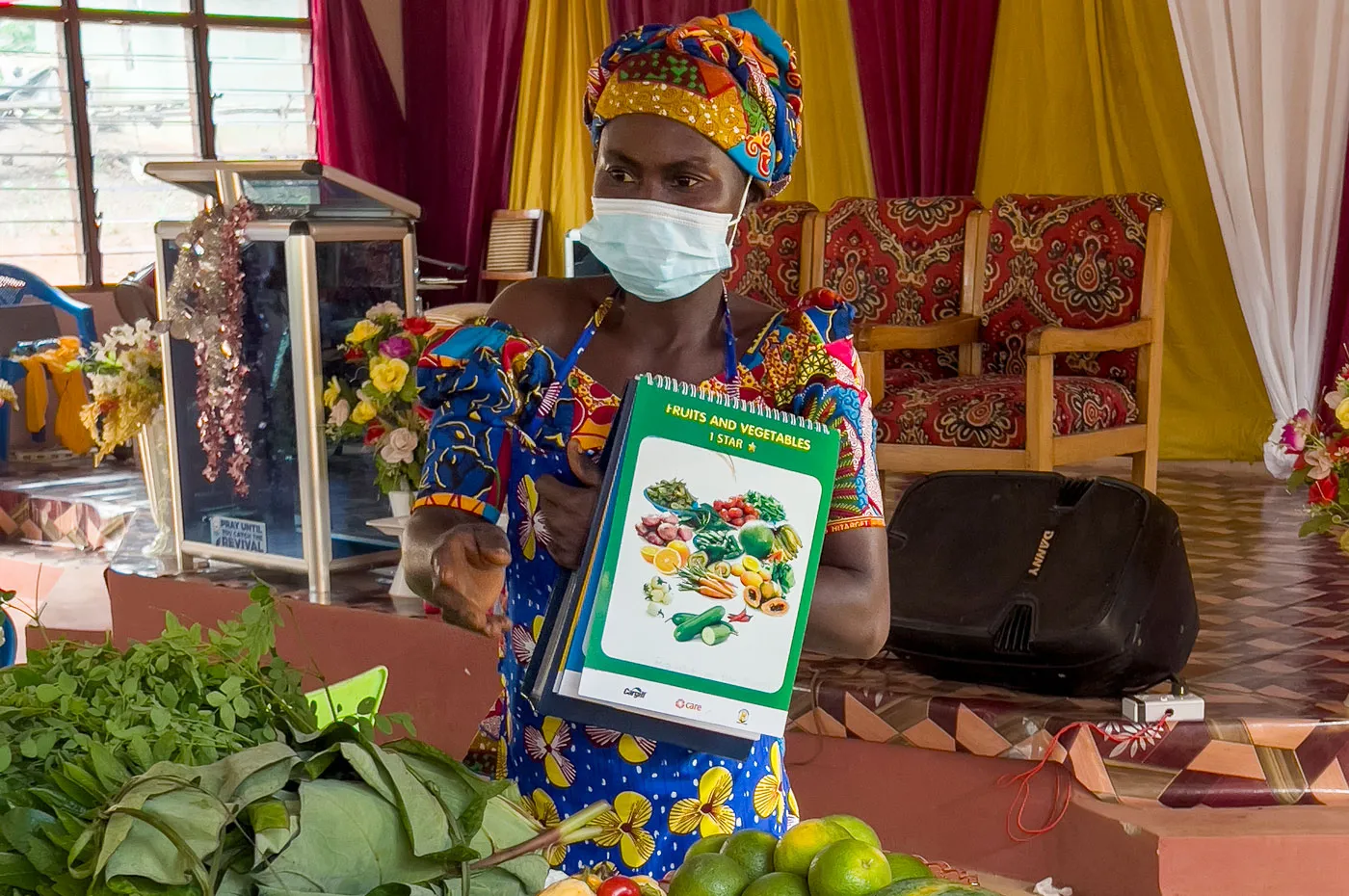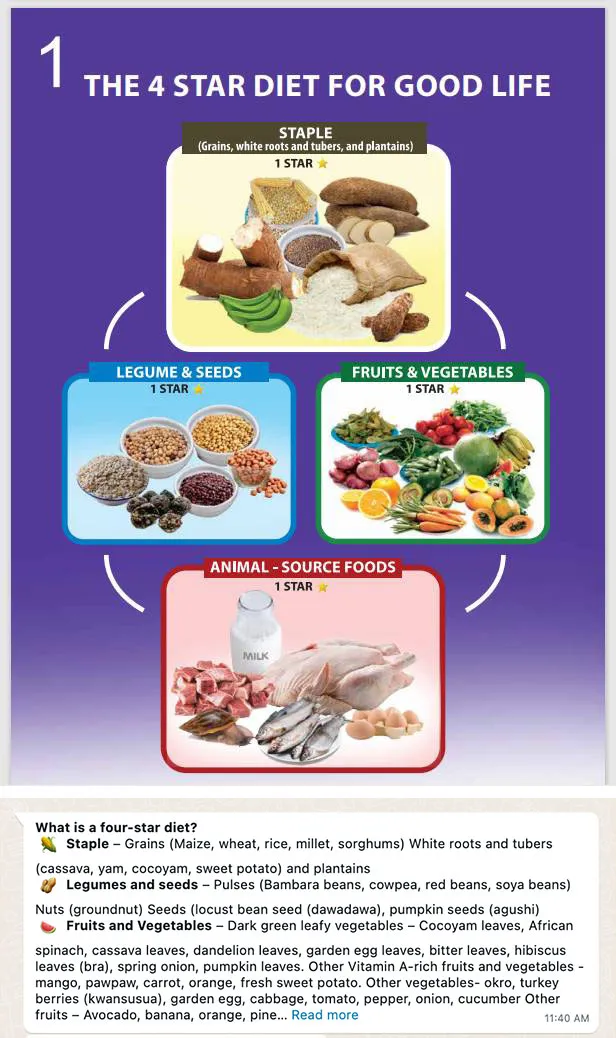Since 1994, CARE Ghana has empowered rural and vulnerable populations through its locally-led health, governance, sustainable livelihoods, and education programs. One of their ongoing programs supports cocoa sustainability by training women on best practices in vegetable and animal rearing through Village Savings and Loan Association groups.
This year, CARE Ghana decided to test using online social behavioral change communications (SBCC) campaigns to complement their on-the-ground program. Through the support of a yearlong Meta Accelerator program, CARE Ghana leveraged best practices for creating successful social media campaigns to improve the nutritional status of reproductive-age women and children under 2 years old in the central region of Ghana.
TL;DR?
- CARE Ghana launched a 6-week campaign targeting men and women aged 18+ to promote healthy nutrition through food choice and behaviors for women and children.
- The campaign encouraged the target audience to access CARE Ghana’s WhatsApp chatbot. Of the 1.3 million people reached, 79% interacted with the ads and over 5,000 people initiated a WhatsApp conversation!
- Men between the ages 18-24 who saw the ads were 2.1 percentage points more likely to correctly identify the right nutritional food for children.
- Campaign results inspired CARE Ghana to launch a Phase 2 campaign focused on converting people’s nutrition knowledge to action — incorporating fruits, vegetables and red meat, which is a great source of iron, into their diets.
Campaign strategy
The 6-week online campaign messaging showcased a “4-star diet” and the importance of including red meat in the diets of women and children. The messaging featured GIF imagery, which has consistently outperformed other creative assets in previous campaigns in Ghana.


